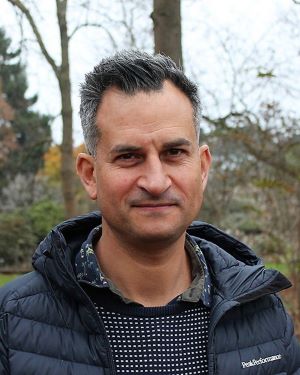Guido Makransky

Professor
Department of Psychology, Faculty of Social Sciences, University of Copenhagen
Research field: Virtual Reality, Augmented Reality, learning with immersive environments
Contact: gm@psy.ku.dk
What do you research?
My current research focuses on understanding the mechanisms of learning and behavior change in immersive learning environments (e.g., Virtual Reality (VR) and augmented reality (AR)). I have developed influential evidence based theories about learning with immersive environments including the Cognitive Affective Model of Immersive Learning (CAMIL), the Theory of Immersive Collaborative Learning (TICOL), and the Immersion Principle of Multimedia learning. The knowledge from this research can be applied to understand the human component of using immersive technology in learning, training, collaboration, health, and behavioral change interventions.
Why is it so important?
The proliferation of new IT platforms like the metaverse has spurred a host of new immersive social applications (VRChat, Mozzila Hubs, Horizon Words). This was accelerated during the COVID-19 pandemic when people relied on technology to connect and solve social, educational, and organizational challenges. The amount of in-person meeting time dropped from 63% in 2019 to 33% during the pandemic in 2021, and this trend is expected to continue to 25% in 2024 due to remote work. There has also been a 44% increase in workers using collaboration tools, and immersive media is expected to represent a significant portion of the total collaboration market by 2030. However, little is known about the human component of social interaction in XR, and as a result, there is a desperate need for novel, theoretically and methodologically strong researcher in this field.
A project you are proud of?
The proliferation of new IT platforms like the metaverse has spurred a host of new immersive social applications (VRChat, Mozzila Hubs, Horizon Words). This was accelerated during the COVID-19 pandemic when people relied on technology to connect and solve social, educational, and organizational challenges. The amount of in-person meeting time dropped from 63% in 2019 to 33% during the pandemic in 2021, and this trend is expected to continue to 25% in 2024 due to remote work. There has also been a 44% increase in workers using collaboration tools, and immersive media is expected to represent a significant portion of the total collaboration market by 2030. However, little is known about the human component of social interaction in XR, and as a result, there is a desperate need for novel, theoretically and methodologically strong researcher in this field.
Updated October 2024
Through his participation in Policy Fellowship 2024-2025, Guido will be working with Thomas Hyldal, principal of Gefion Gymnasium and chairman of Danske Gymnasiers Digitaliseringsudvalg.
In previous policy fellowships, Guido has worked with Jenny Bøving Arendt, Head of Danske Gymnasier (Alumner - Policy Fellowship).
